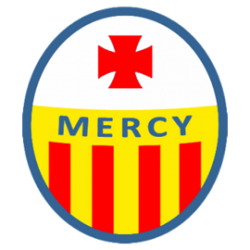Life, especially family life, or life in school, is full of opportunities for self-giving.
When children are young, parents have to do everything for them and sacrifice their own needs for those of their children. The quality of the parents’ loving care lays the foundation for their children to grow into people capable of giving love to others.
When parents are old and infirm, they become dependent on their children to look after them. So, life is a cycle of being cared for and caring for others, of dependence and independence, of receiving and giving. Self-giving is essential if individuals and relationships are to grow and develop.
REVEAL
Lent is the season when Christians practise both giving and giving-up, to identify with the complete self-offering of Jesus which is remembered in the liturgy of Holy Week and the Easter Triduum (Holy Thursday, Good Friday and Easter Vigil).
In his Gospel, Matthew makes it clear that in loving and caring for other people we are loving and caring for Jesus.
Word of God
“For I was hungry, and you gave me food, I was thirsty, and you gave me something to drink, I was a stranger and you welcomed me. I was naked and you gave me clothing, I was sick, and you took care of me, I was in prison and you visited me. Then the righteous will answer him, ‘Lord, when was it that we saw you hungry and gave you food, or thirsty and gave you something to drink? And when was it that we saw you a stranger and welcomed you, or naked and gave you clothing? And when was it that we saw you sick or in prison and visited you?’ And the king will answer them, ‘Truly, I tell you, as you did it to one of the least of these who are members of my family, you did it to me.’”
Matthew 25:35-40
Catechism of the Catholic Church
“Lent: By the solemn forty days of Lent the Church unites herself each year to the mystery of Jesus in the desert.” (CCC540)
“The seasons and days of penance in the course of the Liturgical Year (Lent, and each Friday in memory of the death of the Lord) are intense moments of the Church’s penitential practice. These times are particularly appropriate for spiritual exercises, penitential liturgies, pilgrimages as signs of penance, voluntary self-denial such as fasting and almsgiving, and fraternal sharing (charitable and missionary works).” (CCC1438)
No one was an eyewitness to Christ’s Resurrection and no evangelist describes it. No one can say how it came about physically. …although the Resurrection was an historical event that could be verified by the sign of the empty tomb and by the reality of the apostles’ encounters with the risen Christ. It remains at the very heart of the mystery of faith as something that transcends and surpasses history.” (CCC647)
Prayer and Reflection
Lord, when I am hungry
give me someone to feed;
When I am thirsty
give water for their thirst.
When a burden weighs upon me
lay upon my shoulders
the burden of my fellows.
Lord, when I stand
greatly in need of tenderness,
give me someone who yearns for love. May your will be my bread;
Your grace my strength; Your love my resting place.
(Quaker prayers, Peace and Service, The Society of Friends)

